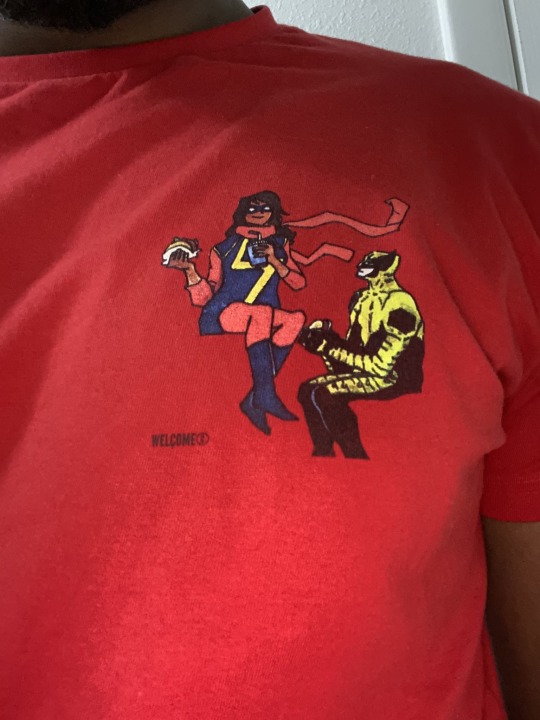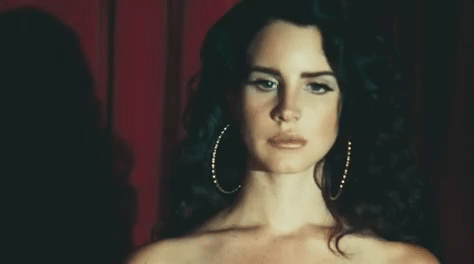#thomas bel
Text
Saturday night at La Zorba in Paris......
Finally, I was able to crawl out of the shed of Reille – without my backpack for once, what a relief – and walked down the street to the metro station on Saturday night before Daylight Saving Time on Sunday – you know longer days & shorter nights – to take a few trains up to Belleville to catch a proper experimental music event. And, this was definitely that type of event to catch!I had the…

View On WordPress
#abodhiswayblog#Aidan Baker#ambient doom metal#dissonant black metal#doom drone#dreamsludge#drone doom#drone metal#drone music#edm#experimental black metal#experimental music#golem mecanique#golem mecanique x thomas bel#ideologic organ#IDM#industrial music#kuntari#la zorba paris#Nadja#namscha#one woman project#primitive industrial music#ritual electronica#ritual music#thomas bel#Titania Tapes label#voices in the distance#xdoomedgex
2 notes
·
View notes
Text

Titania Tapes
Thomas Bel / Cerna Vez
#france#titania#thomas bel#titania tapes#experimental#ambient#javiar#dark#architecture#ancient#cerna vez#art
5 notes
·
View notes
Text

Jeux paralympiques
Paris🗼 2024
Illustration 🖍🖌 ©️ Thomas Tessier
👋 Bel après-midi
#art#illustration#thomas tessier#art contemporain#jo paris 2024#artwork#jeux paralympiques#affiche#tour eiffel#sport#paris#bel après-midi#fidjie fidjie
40 notes
·
View notes
Note
When The Fresh Prince of Bel-Air, a sitcom, can teach their audience how fucked up and traumatic child neglect is in one episode, more than your superhero show can in 5 SEASONS, you not only failed as a writer, but you also failed at teaching children moral lessons and even being sympathetic and understanding to them.
youtube
You know, if Uncle Phil was still alive today, I can only imagine the kind of verbal beatdown he would give Gabriel.
Either way, it's amazing how this episode discussing parental neglect that's almost thirty years old still holds up and is still talked about to this day, while Miraculous Ladybug as a whole has gotten a lot of flak for its abysmal portrayal of what it means to be a parent.
124 notes
·
View notes
Text
'Writer Russell T Davies has shared his theory on why Andrew Scott was shunned for awards for his role as Adam in devastating queer romance film All of Us Strangers.
In All of Us Strangers, Andrew Scott, 47, plays a depressed gay writer who heads back to his childhood home, only to discover that his parents – who died thirty years earlier – are still living there.
He spends several weeks journeying back home to meet their apparitions, even coming out to them as gay. Meanwhile, he sparks up an intense relationship with lonely neighbour Harry (Aftersun star Paul Mescal).
The tear-jerking film was critically acclaimed by fans and critics alike, and ahead of award season beginning in January, was seen as a shoo-in for nominations – particularly for leading man Andrew Scott.
However, All of Us Strangers was shockingly snubbed entirely by the Oscars. While it was nominated for six BAFTA awards, including Best Director for Andrew Haigh and Outstanding British Film, it took zero awards home.
Supporting actors Paul Mescal and Claire Foy, who played Adam’s mother, were both nominated, but Andrew Scott was not, much to the fury of the film’s fans.
Scott was nominated for a Golden Globe for his performance, but lost out to Oppenheimer’s Cillian Murphy.
Now, Russell T Davies – the man behind some of the UK’s queerest TV shows, including It’s A Sin, Queer As Folk, and the new, super gay Doctor Who season – has explained why he thinks Scott was snubbed.
“What I think happened there was, when a gay man plays a gay man, he’s not considered to be acting,” Davies said at a panel with Attitude Magazine during National Student Pride on Saturday (24 February).
“I genuinely think that happened there, that people thought, ‘Oh, he’s very good, but he’s not acting there. He’s not reaching; he was just being himself.”
Davies, who has spoken passionately about queer roles being given to queer actors, also said that Scott’s was a “world-class performance” but was “massively underrated because he’s gay and very publicly and visibly gay”.
During the panel, which Davies spoke on alongside Heartstopper’s Bel Priestly, Everything Now actor Noah Thomas, It’s A Sin’s Nathaniel Curtis and Shadow and Bone actor Jack Wolfe, the Cucumber writer reaffirmed his belief that gay actors deserve to star in gay roles.
“I very publicly and loudly proclaim that gay actors should play gay roles knowing full well that I’m not in charge of the entire industry,” he explained.
“All I’m trying to do is shift [the industry] slightly so that more queer people are seen for queer roles, so that the door is more open.”
Curtis agreed, adding: “If a queer person plays a queer role, people are like, ‘Oh yeah, very well done, lovely.’ But if a straight actor plays a queer role, a lot of the time, they’re like, ‘Give them an Oscar.’”
Following his BAFTA snub, Scott has also been in the spotlight this week after an awkward interview with the BBC which was dubbed by many as “homophobic”.
During the conversation, Scott was asked “how well” he knew Saltburn star Barry Keoghan, in the context of whether Keoghan used a prosthetic penis in the film’s final scene. In response, Scott walked away from the reporter.
Over the weekend, the BBC released a statement about the interview, saying that it was “misjudged” but not intentionally offensive.
“Our question to Andrew Scott was meant to be a light-hearted reflection of the discussion around the scene and was not intended to cause offence,” the statement read.'
#Andrew Scott#All of Us Strangers#BAFTAs#Karry Keoghan#Saltburn#Russell T. Davies#Paul Mescal#Claire Foy#Andrew Haigh#Bel Priestley#It's A Sin#Queer as Folk#Golden Globes#Cillian Murphy#Noah Thomas#Nathaniel Curtis#Jack Wolfe#Cucumber#Heartstopper#Doctor Who#Everything Now#Shadow and Bone
19 notes
·
View notes
Text
what the fuck is cursed thomas the tank engine and why is my 4yo cousin obsessed with it
#that and skibidi toilet which i have been forced to watch w him#bel rants#help me guys#its like where thomas is built like a spider?? help
7 notes
·
View notes
Text

It has heen well suggested that M. Amhroise Thomas's lyrical version oi Hamlet should have been called Ophelia. The question would not then have been raised in too direct a manner, whether or not Shakespear's tragedy has received worthy treatment at the hands of its operatic adaptors. Moreover, Ophelia, who is not the chief character, who is scarcely even a character of the first degree of importance, in Shakespear's Hamlet, is the principal personage, both in a musical and in a dramatic point of view, in the Hamlet prepared for the composer by MM. Barbier and Carre. Finally, the longest, most elaborate, and altogether the best scene in the operatic Hamlet y does not exist in the Hamlet of Shakespear at all. Here the name of Shakespear cannot be used against M. Thomas ; and if he had confined himself to this scene and entitled it The Death of Ophelia , one universal feeling of admiration would have been expressed for the work. The object, however, of M. Thomas was to produce not a poetical little cantata, but a grand opera containing a great part for Mdme. Nilsson ; and accordingly the scene of OpheHa's death is followed by an act which is superfluous, and is preceded by three acts which are in a great measure irrelevant. The parent notion of the opera was certainly the idea that the fair-haired, soft-voiced, Swedish soprano would be in every way an admirable representative of Shakespear's Scandinavian heroine; and so indeed she has proved. Mdme. Nilsson has deeper qualifications for the part than purely external ones, which, nevertheless, may be said to suggest others. All the sentiment of the character seems to belong to her naturally, so that as an actress alone, if she had not a note to sing, she would still be an admirable Ophelia. Then the pure fresh quality of her voice is quite in harmony with the rest of the personage. If the Shakespearian heroines may be divided into two categories, like the heroines of modern opera, Ophelia is eminently a " light soprano '* part, as Lady Macbeth is a part for a " dramatic soprano." The amount of Scandinavianism discoverable in the character of Shakespear's Ophelia, is, probably, very slight ; but M. Thomas has given a tinge of national colour to the music sung by the Ophelia of his opera. This he has done, not by the vulgar expedient of dragging in one national air in complete form, but by reproducing the character of the Swedish melodies (for operatic purposes Sweden and Denmark are one) in both the heroine's grand scenas, and by employing here and there actual passages of Swedish origin.
In the power of characterisation belonging to music lies one of the strong points of opera as a form of art. A Scotchman sings something in the Scotch style, or a Russian something in the Russian style, and the nationality of the personage is at once painted beyond the possibility of mistake. Neither does M. Thomas make any endeavour in Hamlet to give us a Scandinavian finale, wisely contenting himself with such a finale as the Hebrew-Prussian Meyerbeer might have wi-itten. Ophelia's solos are interspersed with little Scandinavian snatches ; and the villagers of the neighbourhood of Elsinore dance, in one place, to a quaint but very graceful melody which is apparently of Scandinavian origin. But another dance tune in the same scene is clearly derived from the Anglican, not to say cockneyfied, tune of *' Billy Taylor." Others, again, might have been written for any ballroom of the present day. M. Ambroise Thomas may, indeed, be acquitted of all intention
to give a Scandinavian character to his music elsewhere than in the strikingly-coloured part of Ophelia, and in the dance tunes of her young companions.
There are few characters, one would think, in all dramatic literature, less favourable for musical treatment than Hamlet. The address to the ghost, the interview between Hamlet and his mother are, to be sure, dramatic enough in the ordinary sense of the word, and furnish suitable groundwork for operatic scenes. But the character of Hamlet is chiefly known to us from the two great monologues ; and the monologues, though a composer of the very highest genius might, doubtless, be able to find appropriate music for them, are not the sort of ** words " that any ordinary composer would like to set, or could adequately deal with. M. Thomas, differing from all the Italian composers who have grappled with Shakespear, seems to have made an honourable endeavour to give to his principal personages their proper musical physiognomy. Verdi (to take a flagrant instance) makes Macbeth, in the most terrible moment of his career, when its tragic termination already stares him in the face, sing a sentimental air of the conventional pattern, which might just as well be sung by Renato in the Ballo in Maschera, and which — if it had not been written some years earlier — would be regarded as a very close imitation of Balfe's ** Come into the garden, Maud." Signor Verdi would doubtless have treated ''To be or not to be?" as he has treated the
*' words " which in the libretto of Macbeth replace *' Canst thou not minister to a mind diseased?" &c. But though his intentions would not have been so meritorious as that of M. Thomas, the thing achieyed would have been at least melodious. The air would have. had no philosophical character, but it would have been singable and what is called " expressive." It would have been, so to sa}^ in rhyme ; whereas M. Thomas's Hamlet sings persistently in blank verse. The only notable case in which the operatic Hamlet breaks into evenly -balanced, sharply-defined rhythm is (if we except a few graceful passages in the finale to the second act) in the drinking song which he addresses to his friends the players in lieu of the well-known hints on acting. Here, again, we are reminded of the scene in Macbeth where the King '^ obliges the company with a song," to be interrupted in the midst of his efiusion by Banquo's ghost. A drinking song is worth nothing in an opera if not relieved at intervals by some anti -jovial incident or reflection ; and in M. Thomas's work the necessary contrast is supplied by a passing change in Hamlet's ever-changing humour.
After Ophelia and Hamlet, the only personage whom the composer seems to have thought it worth while to characterise is the ghost. Alas ! poor ghost. At the thought of this dreadful, because preternaturally dull and dismal, apparition, we can only cry with Hamlet:
" Angels and ministers of grace defend us " — from ever meeting with such a ghost again. In the first place we deny his ghostliness. It is not the voice of a disembodied spirit that we hear, but of a dead man singing. The statue of Don Giovanni (of which it would be unfair to speak if M. Thomas did not in a certain way invite the comparison) repeats the same note to varied harmony, then repeats another note to another succession of chords ; but the dead body of the King of Denmark emits the same sound — makes the same noise, that is to say — so unintermittently for so long a time, that instead of the divine sentiment of terror inspired by the figure on horseback, we feel the sort of awe and about the same admiration that would be excited in us by the unlookedfor appearance of an undertaker's mute. However, in these operatic presentations of great di-amatic masterpieces {Faust, Mignon, Romeo and Juliet, and now Hamlet) "realism" is the great principle cultivated; and it was, perhaps, intended that the music given to the ghost of Hamlet's father should be directly suggestive of the graveyard.
Much has been said about M. Thomas's knowledge of orchestral efi'ect, but it must be possible to abuse such knowledge. "If God had given me, instead of the faculty for creating, capacity forjudging, I do not know,** said the late Alexandre Dumas in one of his most amusing prefaces, " whether I should have had wings powerful enough to raise me to the level of the poet; but I think I should have had sufficiently robust legs to be able to walk round him." Without presuming to criticise M. Thomas's orchestral work, one may say, judging only by its effect, that it is laborious and pretentious writing. It is in many cases " full of sound and fury," whatever it may signify. A melody, or fragment of melody, is often begun on one instrument, continued on a second, and finished — or left unfinished — on a third. In some of the most agitated portions of the opera the accompaniments suggest not merely agitation, but epilepsy. In others they recall the view taken of modern instrumentation by a certain satirist, who declares that its great secret consists in treating trombones as clarinets, and assigning violin passages to the bassoon. In many places, on the other hand, especially in the quieter scenes, the combinations of instruments are charming.
The composer of so many agreeable operas in the light style and of so much pretty ballet music, seems in Hamlet to have forced his talent. Yet a decided exception must be made in favour of his truly poetical Ophelia ; and opera-goers must at least thank M. Thomas for having furnished one of the most graceful and accomplished artists on the lyric stage with a part which suits her as if she had been born for it.
#classical music#opera#music history#bel canto#composer#classical composer#aria#classical studies#maestro#chest voice#Christina Nilsson#Christine Nilsson#dramatic coloratura soprano#coloratura soprano#soprano#the Swedish Nightingale#Swedish Nightingale#The Nightingale#Hamlet#Ambroise Thomas#Ophelia#Paris Opera#Opéra de Paris#Opéra Paris#Ophélie#Mad Scene#classical musician#classical musicians#classical history#opera history
4 notes
·
View notes
Photo










SHOP: GETTOTHECORNER.COM
#jordan rules#isiah thomas#zeke thomas#zeke#michael jordan#dennis rodman#detroit pistons#washington wizards#washington d.c.#air jordan 18#will smith#fresh prince of bel air#bel air#vince carter#toronto raptors#raptros#toronto#the 6ix#ms marvel#kamala khan#inhumans#wolverine#x-men 97#xmen#jaylen brown#boston celtics
21 notes
·
View notes
Text




Thomas Flynn's IG stories from today
#thomas flynn#thomas flynn pictures#actor pictures#ig stories#thomas flynn ig stories#flynnyfans#laurie kynaston#joe cole#bel powley#I don't know the names of everyone in the photos but if anyone does for anyone I didn't tag yet let me know#behind the scenes
4 notes
·
View notes
Text

7 notes
·
View notes
Text





Artwork for Phoenix's 5th album, Bankrupt!
Entertainment / Chloroform / S.O.S. in Bel Air / Trying To Be Cool / Bankrupt!
#phoenix#indie music#indie rock#french music#bankrupt#thomas mars#synthpop#artwork#entertainment#trying to be cool#chloroform#sos in bel air#archive#2013
0 notes
Link
Nature vs Nurture
#De Tweeling#The Twins#Gemenele#al doilea razboi mondial#bel-esprit.ro#ben sombogaart#cronica de film#despartire#destin#ellen vogel#European Film Award#film#gemene#iubire#Muntele Vrajit#Thomas Mann#Premiul Oscar pentru cel mai bun film strain#surori#tessa de loo#timp
0 notes
Text
Een uitgelezen oktober
Toeval of niet? Oktober was griezelmaand. Geen toeval dus dat Thomas Olde Heuvelt mijn #boekvandemaand schreef.
Was het toeval of niet? In oktober las ik vooral griezelverhalen. Die hadden gemiddeld nogal wat pagina’s. Vandaar dat ik in oktober strandde op acht boeken. Ik neem jullie graag mee op griezeltocht.
(more…)

View On WordPress
#bookchoice.com#de Leesjury#Dustin Thao#Hebban Recensie#J.D. Barker#Karin Slaughter#Marc de Bel#Sam Holland#Simon Beckett#Stephen King#Thomas Olde Heuvelt#Young Adult
0 notes
Text
Siren I (Dark!Thomas Shelby x Reader)

Summary: A new singer has come to Small Heath and has unfortunately enraptured the soul of a big-time, Birmingham gangster...
Warnings: 18+ only, eventual NONCON/DUBCON smut, forced marriage, dark!Tommy, obsessed!Tommy, singer!reader, eventual pinv sex, eventual pregnancy, dark shit will be happening
A/N: Song used ''Young and Beautiful"- Lana Del Ray
Dividers @firefly-graphics Banner @vase-of-lilies


Tommy was skeptical when Harry had said he found a singer, the man saying that he needed Grace more for the bar tending than her singing. Harry had said that Grace protested but soon enough shut her mouth once he had found a suitable singer for the pub, someone Harry had said was the daughter of his best friend.
Tommy had been in the snug with his brothers when he heard a woman singing, her voice lulling him in a way that differed from Grace's soft singing.
It intrigued Tommy so much that he stood from his seat, ignoring the looks of his brothers and walking out of the snug to see a woman standing on one of the chairs.
Her voice was hauntingly beautiful as he listened to the song.
I've seen the world, done it all, had my cake now
Diamonds, brilliant, and Bel Air now
Hot summer nights, mid-July
When you and I were forever wild
The crazy days, city lights
The way you'd play with me like a child
Her hair hung in thick curls and her eyes were drawing him in as lightly swayed as she continued her song, Tommy noted that the other men in the bar were calm as they listened. He never realized how calm a pub full of men could feel even when Grace had been singing away her tunes.
Will you still love me when I'm no longer young and beautiful?
Will you still love me when I got nothing but my aching soul?
She wore a black dress, a odd color to wear since most of the women here in Birmingham tended to stray away from such a funeral color unless necessary. Tommy took a drag of his cigarette as he went to lean on the bar, listening to the song that felt almost like a sad love letter in a way.
Dear Lord, when I get to Heaven
Please let me bring my man
When he comes, tell me that you'll let him in
Father, tell me if you can
His mind, for once, felt calm like the voices of tunnels were no longer existing in his battle-wounded mind as Tommy ignored Grace's presence. The woman singing felt as if she was one of the mermaid singers drawing him into the sea from his ship, ready to drown him so he could be with her forever.
All that grace, all that body
All that face makes me wanna party
He's my sun, he makes me shine like diamonds
Peace was not something Tommy had been granted since the war, using drugs, alcohol, and prostitutes to just get by.
But her voice was drawing him so well and his mind was quiet!
Quiet, can you believe it?
He needed that quiet, he needed her! Tommy brought the cigarette to his lips and inhaled the nicotine as he mind began to unravel as he listened and watched.
Will you still love me when I'm no longer young and beautiful?
Will you still love me when I got nothing but my aching soul?
I know you will, I know you will, I know that you will
Will you still love me when I'm no longer beautiful?
He needed to possess her for himself, break her down until all she knew was him and that healing voice singing for her whenever he wanted, whenever he needed.
France had changed Tommy and it wasn't for the better. He wasn't the same man who envisioned himself working with horses and laughing along to the newest joke John had come up with.
Will you still love me when I'm no longer beautiful?
Will you still love me when I'm not young and beautiful?
"Another one, Tommy?" Grace asked, holding the whiskey bottle.
Another song was what he needed and he was going to do whatever it took to have it all to himself.

Her time singing had come to a close that night, Y/N in the back room of the Garrison collecting her purse and lighting a cigarette as Harry came into the room with a small envelope.
" 'Ere you go", he said with a grin. "How's Small Heath holding to your expectations?"
"It's certainly not California", she remarked and he chuckled.
"Ya use to all the sunshine", Harry joked before leaving.
California, specifically Los Angeles, had been her home and before that, France had been her temporary home as she was a nurse during the war.
Coming home had been something of shell-shock for her, she had witnessed blood and guts and heard the screams of men she was treating to coming back home with her mother where she was expected to be normal. She tried for her family's sake, she truly did but in the end, it felt suffocating and thus, her move outside of America.
Collecting her things, Y/N looked inside the envelope at the bills given to her when she heard the door open once again.
"Hello there."
#reader insert#x reader#chubby reader#peaky blinders#peaky blinders imagine#peaky blinders x reader#thomas shelby#thomas shelby x y/n#thomasshelbyxreader#thomas shelby x reader#thomas shelby x you
313 notes
·
View notes
Text
'Russell T Davies has spoken out on Andrew Scott not being nominated for a BAFTA for his role in All of Us Strangers, saying the actor was snubbed for his sexuality.
The Doctor Who and Queer as Folk writer was speaking at National Student Pride on Saturday (24 February), on a panel on queer representation in media moderated by Attitude editor-in-chief Cliff Joannou.
Many expected Scott’s acclaimed performance in queer love story All of Us Strangers to land him a BAFTA award, but were left shocked when the actor wasn’t even nominated.
“What I think happened there was, when a gay man plays a gay man, he’s not considered to be acting,” Davies said. “I genuinely think that happened there, that people thought, ‘Oh, it’s very good, but he’s not acting there. He’s not reaching; he was just being himself.’”
He also said Scott’s turn in the movie was “a world-class performance [that] was massively underrated because he’s gay and very publicly and visibly gay.”
“I very publicly and loudly proclaim that gay actors should play gay roles,” he further pointed out, adding, “What I’m trying to do is shift it slightly so that more queer people are seen for queer roles”
Davies was joined on the panel by It’s a Sin actor Nathaniel Curtis, Everything Now star Noah Thomas, Shadow and Bone actor Jack Wolfe and Heartstopper actress Bel Priestley.
Echoing Davies’ points, It’s a Sin‘s Curtis said: “If a queer person plays a queer role, people are like, ‘Oh yeah, very well done, lovely.’ But if a straight actor plays a queer role, a lot of the time, they’re like, ‘Give them an Oscar.’”
On the authenticity that comes from casting queer actors in queer roles, Curtis added: “I watched [All of Us Strangers] a couple of weeks ago. Absolutely fell in love, bawled my eyes out, and Andrew Scott, I think, is one of the finest actors of our generation and I think Paul Messell does a beautiful job, but there’s something in Andrew’s eyes that you just recognise and there’s a depth to his sadness that only a queer person can see and can believe.”
Andrew Scott is the cover star of issue 357 of Attitude magazine, available to buy in newsagents now or to read through the free Attitude app.'
#Russell T. Davies#Nathaniel Curtis#Andrew Scott#All of Us Strangers#BAFTA#Doctor Who#Queer As Folk#Noah Thomas#Shadow and Bone#Heartstopper#Everything Now#Bel Priestley
5 notes
·
View notes
Text







Transatlantic (2023)
1.03 | The Wilderness
I don't believe in wishes. If we want something, we just have to make it happen.
GIF ID: A series of seven gifs of Thomas and Varian passionately kissing as they make their way upstairs at the villa Air-Bel after the party. They are tearing at each other's clothes and are so wrapped up in the moment that they do not notice Patterson watching them from behind the door to the next room. Caption plain text: Transatlantic 2023. 103 The Wilderness. I don't believe in wishes. If we want something, we just have to make it happen. End plan text.
#transatlantic#transatlanticedit#transatlantic netflix#tvedit#dailytvgifs#mlmsource#netflixedit#tvandfilm#cinematv#lgbtqedit#lgbtq#varian fry#thomas lovegrove#lovefry#cory michael smith#amit rahav#barrowgifs#tuserpris#userrjoana#they were insane for this#from the moment they crash together at the top of the stairs#thomas ripping off varian's tie?? and yanking his head back by his hair???#and on top of all that they are smiling the entire time#this show is a master class in show don't tell#dark scenes my behated
409 notes
·
View notes